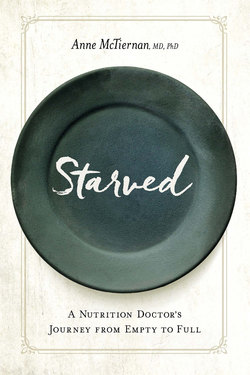Читать книгу Starved - Anne McTiernan - Страница 10
На сайте Литреса книга снята с продажи.
ОглавлениеPrologue
I answered the phone, expecting the usual telemarketing call telling me not to hang up. Instead, a woman’s voice asked if I was Dr. Anne McTiernan. Most people calling my home don’t know I’m a doctor, unless they are friends or relatives.
“Yes,” I said, looking out at Lake Washington’s steel gray water under an equally drab sky, a typical Northwest November sunset. Any minute now, I’d hear my husband open the garage door to bring in his bike after pedaling home from teaching his last university class of the day.
“Hi, Doctor, my name is Joan McGinn. I’m the social worker at your mom’s nursing home in Plymouth.”
“Hello,” I said. I didn’t want to deal with this tonight. I had returned late the previous night from giving a talk on obesity, exercise, and breast cancer at an American Association for Cancer Research conference in Washington, DC. Today, I’d risen as usual at 5:00 A.M. for my morning workout followed by a full day of meetings.
“Your mother asked me to call you.”
My stomach twisted into an imitation of sausage links. This was not the first person to phone me on my mother’s behalf. Over the years I’d been called by neighbors, doctors, nurses, and lawyers. I took a cleansing breath, trying to decide how much to tell this stranger about my relationship with my eighty-seven-year-old mother, how I had discontinued my visits with her ten years before and had stopped taking her calls five years ago. And I did that because every contact with my mother brought up painful memories I was unable to handle. Before I said anything, the social worker continued.
“You mom has decided to go off dialysis,” she said.
The sausage links burst. I knew what this meant. My mother had end-stage kidney disease. Without dialysis, she’d be dead within days.
“Oh, God,” I said.
“Your mom told me she’s suffered enough. She is ready to let go.”
I stayed quiet, thinking then not thinking.
“Would you like to speak with your mom? I know the two of you have been estranged.”
“No,” I said quietly. I didn’t want the last words I heard from her to be the usual accusation that I was a horrible daughter. “But please tell her that we talked,” I added.
“Okay, I’ll do that. The nurses will make sure your mom is comfortable.”
“Thanks.”
“Do you want me to let you know how she’s doing?” she asked.
“Yes, please, that would be nice.”
“Okay, I’ll be in touch.”
“Tell her I’m thinking of her.”
“I will.”
And indeed, I was thinking of her. I thought of her most days.
The social worker called as promised, two days later. “I’m sorry to tell you that your mom just died,” she said.
I decided to go to her funeral. I wanted to see for myself. I needed to make sure she was dead.
